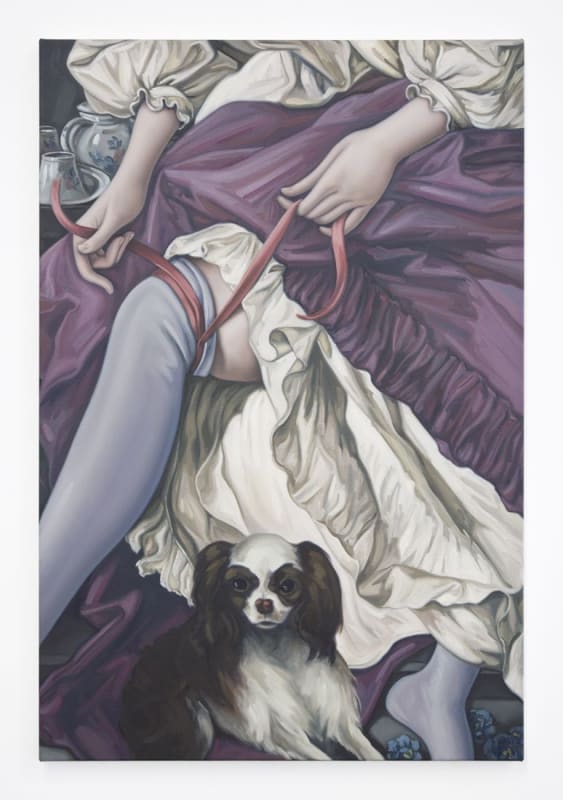Dear Reader,
Lest you be confused by the distance between us, what follows is an interview with Jesse Mockrin’s recent body of work:
No one has asked with such insistent perspicacity why it is that in the painting of the high rococo, such a convoluted profusion of voluminous taffeta, of patterned damask, of coy, porcelanite thighs, is punctuated with a seemingly endless series of little side tables, shelves, and ottomans, jabbing awkwardly into the geometry of the room, tilting it outward so that the stray ribbon or rose that inevitably spill off their edges, appear as though tumbling off the pages of an open book.
Such delicacy makes us uneasy now.
Perhaps the telephoto effect of dopey forensics that passes for our historical imagination presses the past into ham-fisted moralities too blunt to register anything but capital shame, as though the angel of history would stoop to spanking us in celebration of our self-aggrandizing piety.
Delicacy is more delicate than we think, and more resilient.
Let’s be clear. This was not a prelude to the righteous blade of revolution. It was the depth perception of the sensuality of our epistemological coming of age. If painting transforms the allegorical opticality of its surface into a tremulous filigree of synaesthetic caress, it is not simply repeating the ululations of a lexicon that endlessly trips over itself to spell out the code-blind semaphore of frivolity.
Frivolity too has its archaeologists, and you will find their fine-grained play of surfaces measuring the seismic perturbations of a subjectivity reordering itself along the faultlines of sensuous perception.
But interiority is too impoverished a concept to hold the cocktail of mimicry, and travesty, and desire that structures the perpetual mirror stage of modernity (and its exigencies). Have we never been modern? On the contrary, modernity is the internalization of a system of analogies so finely quantized that universal mathesis becomes fictions of the pose.
Why shouldn’t we remember that we clothe our interiors and our exteriors in the same fraught fragment of promises about nature, and the nature of looking, and of being looked?
There is tenderness in that blossom.
– Edward Sterrett
